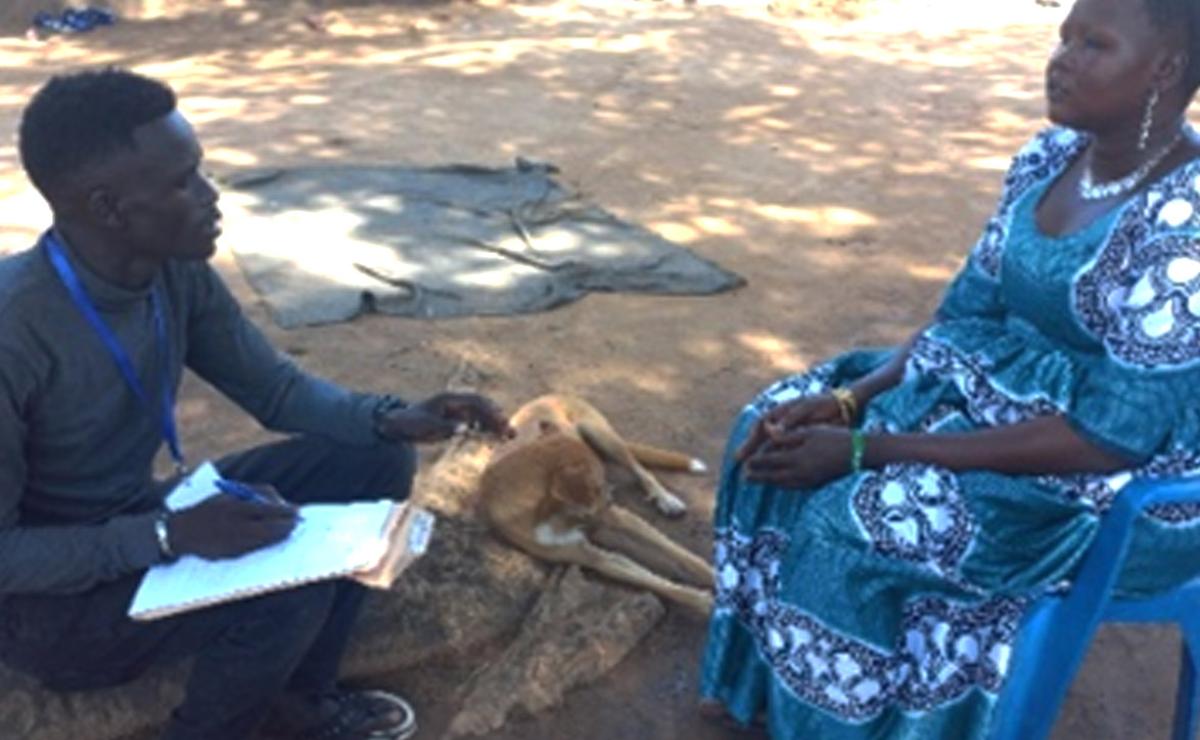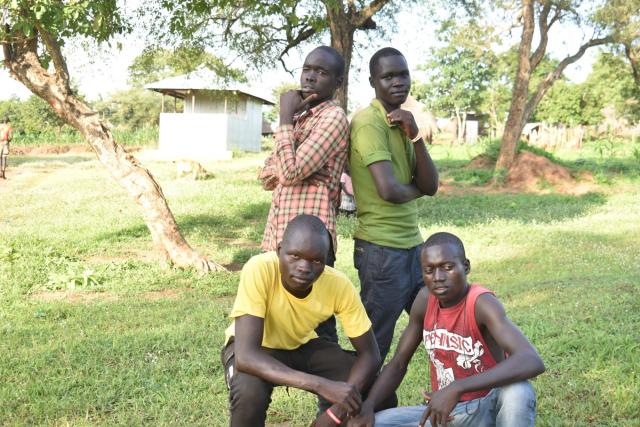Peer support demonstrates good mental health-seeking behaviours among distressed refugees

Withdrawing from drug abuse and alcoholism as a coping mechanism has sparked Alex Duku's mental health activism.
The 32-year-old in Northern Uganda's Boroli settlement in Adjumani district is now a model mental health community-based psychosocial ambassador. He guides other refugees in accessing services while fostering social cohesion and mutual support.
"I have healed from stress and provided basic counselling to other distressed persons in my community," Duku reveals how he uses his experience to help his colleagues.
The escalation and protracted conflicts coupled with the large-scale displacement of families searching for safety has led to psychological distress among most refugees. So was Duku's predicament when he arrived in Uganda five years back.
"I could not afford my wife's high expectations," he narrates his ordeal shortly after fleeing South Sudan, where he left all his belongings, including the business. "She became so aggressive and rude, which threw me into a lot of stress," the father of two says he felt worthless and became suicidal at some point because he could not provide for the family. On separating with his wife, Duku became a nuisance and joined other violent youth groups that caused chaos within the settlements.
However, luck was on Duku's side when the Reconnecting Lives, Vision, and Empowerment (ReLiVE) project's second phase started in September last year. As one of the components, the second phase identifies and trains more Community-Based Psychosocial Support structures as first responders to consolidate local solutions.
"One of the local leaders identified me to attend the training to help me change my behaviours," he reveals his road to recovery. He was among the youths trained to promote peace and social cohesion.
With funding from the Bureau of Population, Refugees, and Migration (PRM), the humanitarian bureau of the State Department, LWF Uganda implements the project in Palabek, Palorinya, Kyangwali and Adjumani settlements.
"I didn't know I was depressed until the training happened, and I learnt that I am not responsible for my misfortunes," Duku says he received counselling during the same training.
For the change of behaviour and positive response, the project team chose him as a community-based psychosocial ambassador under the project to use his experience to support other refugees who are stills distressed.
Right now, Duku spends most of his time combing villages within the settlement to identify and provide basic counselling to distressed refugees. He also makes referrals to more specialised treatment, follows-up and home visits.
"I have not only healed and helped others, but I also reintegrated with my wife and children because I learnt how to manage disagreements between us," Duku says, adding that he is now empowered and determined to deal with any challenge.
The project evolves and empowers them into savings and income-generating groups to ensure sustainability and strengthen the community-based psychosocial ambassadors like Duku. For example, in the Palorinya settlement also located in Northern Uganda, several youth groups were identified and equipped with music systems to create awareness of gender-based violence and its effects like mental distress.
The ghetto youth music group is one of the groups that received sound music systems to mobilise their agemates into dancing groups in the palorinya settlement as a therapy to relieve their stress.

"When I come around with my friends, and we sing and dance, I forget stress," Sijari Lukajo, one of the group leaders, says.
With the support from the RELiVE project, the group has acquired a basic maize milling machine where they earn money and also help extremely vulnerable individuals like the elderly in the community.
"We save the money and share the profits as a group. We also use the income to facilitate our awareness campaigns and support ourselves in case of any incident," he adds.
Hence, such sustainability plans, and empowered community structures can survive on their own and continue promoting good mental health-seeking behaviours even without the support of the project.
-END-

